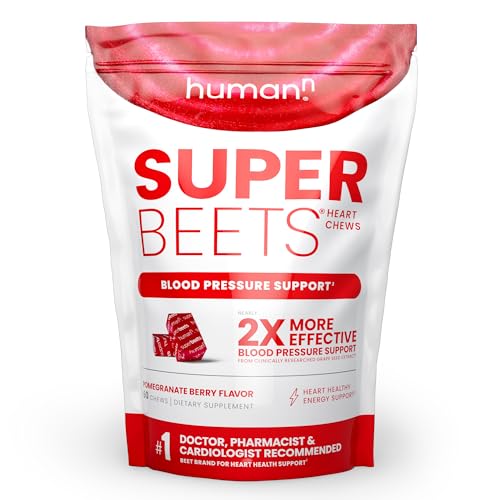*This post may contain affiliate links for which I earn commissions.*
Indeed, nitrates often get a bad rap, especially when they are found in processed foods like bacon, sausages, and deli meats. These processed meats usually contain added nitrates in the form of sodium nitrate or sodium nitrite, which help preserve the product and enhance its color and flavor. However, these added nitrates can form harmful compounds called nitrosamines, especially when cooked at high temperatures. These compounds have been linked to health risks, including an increased risk of cancer.
The Good Side of Nitrates: Naturally Occurring Nitrates
On the other hand, nitrates found in naturally occurring sources, like leafy greens (e.g., spinach, arugula) and root vegetables (e.g., beets, carrots), provide a range of health benefits. When you consume these nitrate-rich vegetables, your body converts the nitrates into nitric oxide, a compound that helps to relax and widen blood vessels. This process supports better blood flow, potentially reducing blood pressure and improving overall cardiovascular health. Nine Ways of Reducing Blood Pressure Naturally without Medication explains this concept in more detail.
Moreover, these natural nitrate sources are packed with antioxidants, vitamins, and other nutrients that can prevent the formation of harmful nitrosamines. Vitamin C and polyphenols in these vegetables help protect the body from converting nitrates into potentially toxic compounds.
How Nitrates Benefit Your Health
Consuming nitrates from natural sources has been linked to numerous health benefits, including:
- Improved Blood Pressure: Nitric oxide from nitrates helps in dilating blood vessels, which can lower blood pressure and enhance heart health.
- Boosted Athletic Performance: Nitrates can improve exercise performance by enhancing the efficiency of mitochondria, the energy-producing structures in cells. This is why beetroot juice is a popular supplement among athletes.
- Enhanced Brain Function: Increased blood flow resulting from nitric oxide production can support cognitive function and reduce the risk of cognitive decline.
humanN SuperBeets Heart Chews, Nitric Oxide and Blood Pressure Support, Grape Seed Extract & Non-GMO Beet Root Powder Energy Chews, Super Beets Heart Chews, Pomegranate Berry Flavor, 60 Count
$39.95 ($0.67 / Count)
SUPPORT BLOOD PRESSURE & ENERGY: SuperBeets Heart Chews are powered by clinically studied Grape Seed Extract to support healthy blood pressure. These Nitric Oxide supporting supplements for men and women may help support healthy circulation.
CLINICALLY RESEARCHED INGREDIENTS: Each serving delivers 150mg of French Grape Seed Extract from the Loire Valley and 500mg of USA-grown beetroot powder SuperBeets chewables for antioxidant support and heart health support.
Nitrates vs. Nitrites: What’s the Difference?
Before diving deeper into how nitrates affect our health, it’s helpful to take a quick look at the basic chemistry of nitrates and nitrites. While the terms may sound similar, they have different structures and very different effects on the body.
The Simple Chemistry of Nitrates and Nitrites
When nitrites are present in the body, they can either turn into helpful nitric oxide (which has heart and blood flow benefits) or, under certain conditions, into potentially harmful compounds called nitrosamines.
Nitrates (NO3)
Imagine nitrates as a nitrogen atom that is connected to three oxygen atoms. This is how nitrates naturally exist in many vegetables, such as spinach, beets, and lettuce. When we eat foods rich in nitrates, our bodies can convert them into nitrites, which then further convert into a beneficial compound called nitric oxide. This nitric oxide is what helps relax our blood vessels, improving blood flow and supporting heart health.
Nitrites (NO2)
Nitrites are pretty similar but have a slightly different structure—they consist of a nitrogen atom bonded to only two oxygen atoms. Nitrites can come from two sources: they can form naturally in our bodies from nitrates, or they can be added to processed foods like cured meats as preservatives.
Naturally Occurring vs. Added Nitrates and Nitrites
Both nitrates and nitrites can be found in foods, but the difference lies in where they come from and how they interact in our bodies:
- Naturally Occurring: When you eat vegetables like spinach, celery, or beets, you’re consuming natural nitrates. The presence of antioxidants (like vitamin C) in these vegetables prevents the formation of harmful compounds, making them a healthy part of your diet. Your body efficiently converts these natural nitrates into nitric oxide, promoting benefits such as improved blood circulation and reduced blood pressure.
- Added Nitrates/Nitrites: In processed meats, like bacon and sausages, nitrates and nitrites are often added to preserve the meat and enhance its flavor. The issue here is that, during cooking (especially at high temperatures), these added nitrites can form nitrosamines, compounds that have been linked to health risks. This is why processed meats are often considered less healthy.
How It All Comes Together
In summary, nitrates and nitrites have different structures and roles. Naturally occurring nitrates in vegetables can convert into beneficial compounds that support heart health. Meanwhile, added nitrites in processed meats can sometimes form harmful compounds, especially when cooked improperly. Knowing this difference can help you make more informed food choices that support your overall well-being.
Discover the Power of Natural Nitrates: Boost Your Health with Every Bite
Have you ever wondered about the hidden benefits of the vegetables on your plate? When you eat vegetables like spinach, celery, or beets, you’re not just consuming vitamins and minerals. You’re also taking in natural nitrates, which play a crucial role in promoting your health. These compounds, found abundantly in certain vegetables, are transformed by your body into nitric oxide. This transformation brings about a host of benefits, including improved blood circulation and reduced blood pressure. Let’s dive into the world of natural nitrates and explore how they can enhance your well-being.
Understanding Natural Nitrates
Natural nitrates are compounds found in various vegetables that have a significant impact on our health. Unlike the nitrates found in processed foods, which can form harmful compounds, natural nitrates are beneficial. They are converted into nitric oxide in the body, a molecule that plays a vital role in maintaining cardiovascular health. Nitric oxide helps to relax and widen blood vessels, improving blood flow and reducing blood pressure. This process is essential for maintaining a healthy heart and preventing cardiovascular diseases.
One of the key aspects of natural nitrates is their ability to work synergistically with antioxidants. Vegetables rich in nitrates often contain antioxidants like vitamin C, which prevent the formation of harmful nitrosamines. This combination makes these vegetables a safe and healthy choice for boosting your nitrate intake. By incorporating nitrate-rich vegetables into your diet, you can enjoy the benefits of improved circulation and reduced risk of heart-related issues.
The Role of Antioxidants in Nitrate-Rich Vegetables
Antioxidants are compounds that protect our cells from damage caused by free radicals. In nitrate-rich vegetables, antioxidants play a crucial role in ensuring that the nitrates are converted into beneficial nitric oxide rather than harmful compounds. Vitamin C, a powerful antioxidant, is often found in these vegetables and helps to neutralize free radicals. This process not only enhances the health benefits of nitrates but also supports overall cellular health.
When you consume vegetables like spinach, celery, or beets, you’re getting a double dose of health benefits. The nitrates improve blood flow, while the antioxidants protect your cells and support your immune system. This combination makes these vegetables a powerhouse of nutrition, providing essential nutrients and promoting overall well-being. By including a variety of nitrate-rich vegetables in your diet, you can harness the full potential of these natural compounds.
Top Vegetables High in Natural Nitrates
Incorporating nitrate-rich vegetables into your diet is a simple and effective way to boost your health. Here are some of the top vegetables that are high in natural nitrates:
- Spinach: This leafy green is not only rich in nitrates but also packed with iron, calcium, and vitamins A and C.
- Beets: Known for their vibrant color, beets are a great source of nitrates and antioxidants, making them a heart-healthy choice.
- Celery: With its high water content and nitrates, celery is a refreshing addition to any meal.
- Lettuce: A staple in salads, lettuce provides a good amount of nitrates along with fiber and vitamins.
- Arugula: This peppery green is not only flavorful but also rich in nitrates and other essential nutrients.
By including these vegetables in your meals, you can naturally increase your nitrate intake and enjoy the associated health benefits. Whether you add them to salads, smoothies, or main dishes, these vegetables are versatile and easy to incorporate into your diet.
How Your Body Converts Nitrates to Nitric Oxide
The conversion of nitrates to nitric oxide is a fascinating process that occurs in the body. When you consume nitrate-rich vegetables, the nitrates are absorbed into your bloodstream. From there, they are converted into nitrites by bacteria in your mouth. This conversion is an essential step in the process, as it allows the nitrites to be further transformed into nitric oxide in the stomach and bloodstream.
Nitric oxide is a powerful molecule that plays a crucial role in maintaining cardiovascular health. It helps to relax and dilate blood vessels, improving blood flow and reducing blood pressure. This process is vital for ensuring that oxygen and nutrients are efficiently delivered to your cells. By consuming natural nitrates, you can support this process and promote overall cardiovascular health.
Health Benefits of Natural Nitrates
The health benefits of natural nitrates extend beyond improved blood circulation and reduced blood pressure. These compounds have been linked to a range of positive effects on the body, making them an essential part of a healthy diet. Here are some of the key benefits of natural nitrates:
- Enhanced Exercise Performance: Nitric oxide improves blood flow to muscles, enhancing endurance and performance during physical activity.
- Improved Cognitive Function: By increasing blood flow to the brain, nitric oxide supports cognitive function and may help prevent age-related decline.
- Reduced Inflammation: Natural nitrates have anti-inflammatory properties, which can help reduce the risk of chronic diseases.
- Support for Healthy Blood Pressure: By relaxing blood vessels, nitric oxide helps to maintain healthy blood pressure levels.
Incorporating nitrate-rich vegetables into your diet can help you enjoy these benefits and supportAre Ultra Processed Food Dangerousyour overall health. Whether you’re looking to improve your athletic performance or maintain a healthy heart, natural nitrates are a valuable addition to your nutrition plan.
Incorporating Nitrate-Rich Vegetables into Your Diet
Adding nitrate-rich vegetables to your diet is easier than you might think. These versatile vegetables can be included in a variety of dishes, making it simple to boost your nitrate intake. Here are some tips for incorporating these vegetables into your meals:
- Start Your Day with a Smoothie: Blend spinach or arugula with fruits and yogurt for a nutrient-packed breakfast.
- Add Beets to Salads: Roasted or raw beets add a sweet and earthy flavor to salads, along with a boost of nitrates.
- Snack on Celery Sticks: Pair celery with hummus or peanut butter for a healthy and satisfying snack.
- Include Lettuce in Sandwiches: Add a layer of lettuce to your sandwiches for extra crunch and nutrients.
- Experiment with Arugula Pesto: Use arugula instead of basil to create a unique and flavorful pesto sauce.
By incorporating these tips into your meal planning, you can easily increase your intake of natural nitrates and enjoy their health benefits. Whether you’re a seasoned cook or a kitchen novice, these vegetables are easy to prepare and delicious to eat.
“Ultra-processed foods are so different from anything we have eaten in human history that they deserve their own category. They have changed the human diet and are increasingly recognized as a contributor to a range of diseases.”
Dr. Chris van Tulleken, author of Ultra-Processed People: Why Do We All Eat Stuff That Isn’t Food … and Why Can’t We Stop?
Potential Concerns and Considerations
While natural nitrates offer numerous health benefits, it’s important to be aware of potential concerns and considerations. One of the main concerns with nitrates is their potential to form nitrosamines, which are harmful compounds. However, the presence of antioxidants in nitrate-rich vegetables helps to prevent this formation, making them a safe choice for consumption.
Nitrates: Beneficial or Harmful? The Bottom Line
When nitrates come from natural sources, like vegetables, the body often converts them into nitric oxide. This compound plays an essential role in relaxing blood vessels, improving blood circulation, and helping lower blood pressure. Additionally, nitric oxide is known to enhance athletic endurance by optimizing the delivery of oxygen and nutrients to muscles during exercise. So, eating nitrate-rich vegetables like spinach, beets, and arugula can have a positive effect on cardiovascular health and physical performance.
It’s also important to consider the source of your vegetables. Organic and locally sourced produce is often higher in nutrients and free from harmful pesticides. By choosing high-quality vegetables, you can ensure that you’re getting the most benefits from your nitrate-rich foods.
When we consume nitrates, they undergo different transformations in the body, which can result in either beneficial or harmful effects. This process begins when nitrates are converted to nitrites, primarily through bacteria found in our mouth and gastrointestinal tract. From here, these nitrites can go down two different paths: they can become beneficial nitric oxide or be transformed into less desirable nitrosamines. The path they take has a significant impact on our health.
However, the story changes when nitrates are added to processed meats. Cooking these nitrate-rich meats at high temperatures (such as frying bacon or grilling sausages) can lead to the formation of nitrosamines, compounds that have been linked to an increased risk of cancer. The World Health Organization (WHO) has classified processed meats as “Group 1 carcinogens,” meaning there is strong evidence that they can cause cancer in humans. This is why limiting consumption of processed meats like bacon, sausage, hot dogs, ham, beef jerky, and deli meats is often advised.
Processed foods, especially ultra-processed foods (UPFs), have been associated with an increased risk of cancer and other health issues. A multinational study by the International Agency for Research on Cancer (IARC) found a higher consumption of UPFs is linked to an elevated risk of cancer and cardiometabolic diseases. These findings highlight the need for dietary recommendations and health policies aimed at reducing the intake of UPFs to lower cancer risks and improve overall health. You can read more about the dangers of ultra processed foods here
Nitrates
Nitrites
Holistic Health
Ultra Processed Foods
Why Are Nitrates Added to Meat Products?
If nitrates can potentially form harmful compounds, why are they commonly added to processed meats? The answer lies in their preservative and flavor-enhancing properties. Nitrates serve several purposes in meat products. In the ingredients list of packaged meats, you’ll often find “sodium nitrate” or “sodium nitrite” listed, indicating the presence of added nitrates. These compounds help manufacturers achieve the desired taste, appearance, and safety standards of processed meats without acknowledging their carcinogenic properties.
Preservation:
Nitrates help prevent the growth of harmful bacteria, such as *Clostridium botulinum*, which can cause foodborne illness. This extends the shelf life of processed meats.
Color Retention
They keep the meat’s pink color, making it look more appealing and avoiding the unappetizing brown color that can occur in when the meat is naturally cured
Flavor Enhancement
Nitrates contribute to the salty, umami flavor that many people enjoy in cured meats.
Embracing the Benefits of Natural Nitrates
Incorporating natural nitrates into your diet is a simple and effective way to boost your health. By choosing vegetables like spinach, celery, and beets, you can enjoy the benefits of improved blood circulation, reduced blood pressure, and enhanced overall well-being. These vegetables are not only nutritious but also delicious and versatile, making them a valuable addition to any meal.
As you explore the world of natural nitrates, remember to focus on variety and balance. By including a range of nitrate-rich vegetables in your diet, you can harness their full potential and support your health in a natural and sustainable way. So, the next time you sit down to a meal, take a moment to appreciate the power of natural nitrates and the positive impact they can have on your life.While nitrate-rich vegetables are beneficial, they should be part of a varied and balanced diet that includes a wide range of nutrients. Combining these vegetables with other healthy foods can support your overall health and well-being.
When we consume nitrates, they undergo different transformations in the body, which can result in either beneficial or harmful effects. This process begins when nitrates are converted to nitrites, primarily through bacteria found in our mouth and gastrointestinal tract. From here, these nitrites can go down two different paths: they can become beneficial nitric oxide or be transformed into less desirable nitrosamines. The path they take has a significant impact on our health.
Navigating Your Diet: Embrace Natural Nitrates and Limit Processed Ones
Understanding the difference between naturally occurring nitrates in vegetables and added nitrates in processed meats is key to making healthier dietary choices. Incorporating plenty of nitrate-rich vegetables into your diet can offer cardiovascular benefits and support overall well-being. In contrast, limiting your intake of processed meats, especially those cooked at high temperatures, can help reduce exposure to harmful nitrosamines and associated cancer risks.
The bottom line? While nitrates themselves are not inherently harmful, their source and the way they are processed in the body determine their impact on health. By choosing fresh, whole foods and being mindful of ingredient labels on processed products, you can harness the health benefits of natural nitrates while minimizing potential risks.







